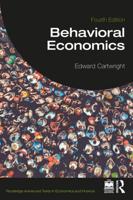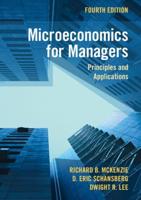Publisher's Synopsis
The institutional economy is the economy of rules and laws, conventions and precedents. It is prices but also practices, change but also constancy, individual but also interdependence. David Reisman argues that conformity and repetition as well as new initiatives and mould-breaking departures constitute the essence of supply and demand.
This thorough and comprehensive book examines the role that institutions play in economic life. The discussion begins with common values, shared traditions and individual habits which have their roots in the past. It goes on to consider consumer preferences, needs and wants, altruism, malevolence, intrinsic motivation, organisational memory and the social capital that is embedded in networks and communities. Its conclusion is that there is a case for a broadly-based economics which is a science of norms and standards as well as a theory of prices and costs. Culture is continuity and pattern. Precisely the same is true of supply and demand.
The Institutional Economy deals with a topic that is of increasing importance in social economics and political economy. It will be of interest to all social scientists concerned to make demand and supply more relevant to the economic conditions of the present day.








